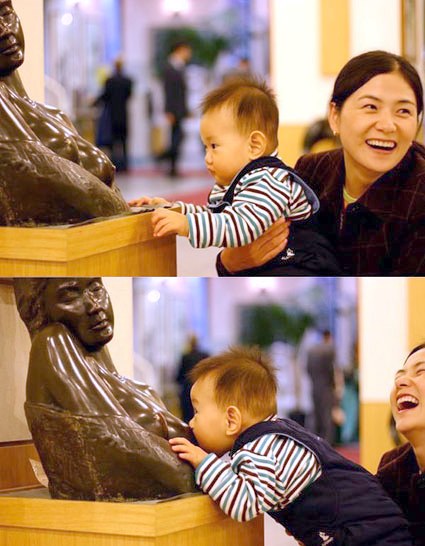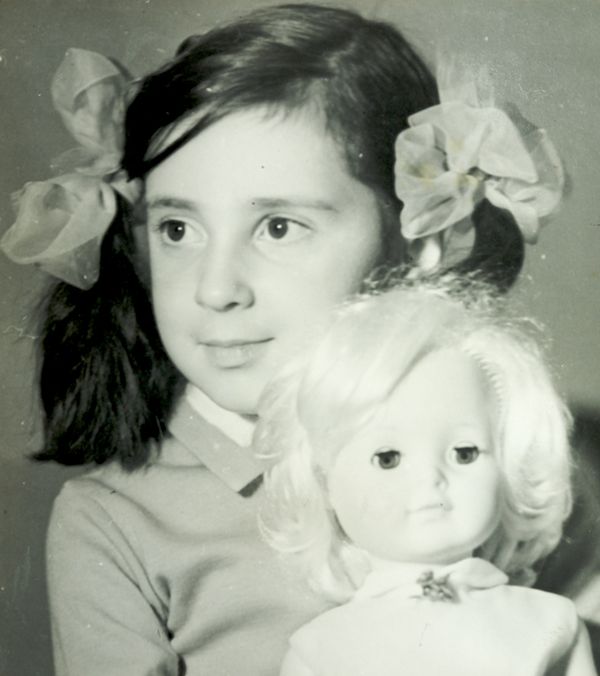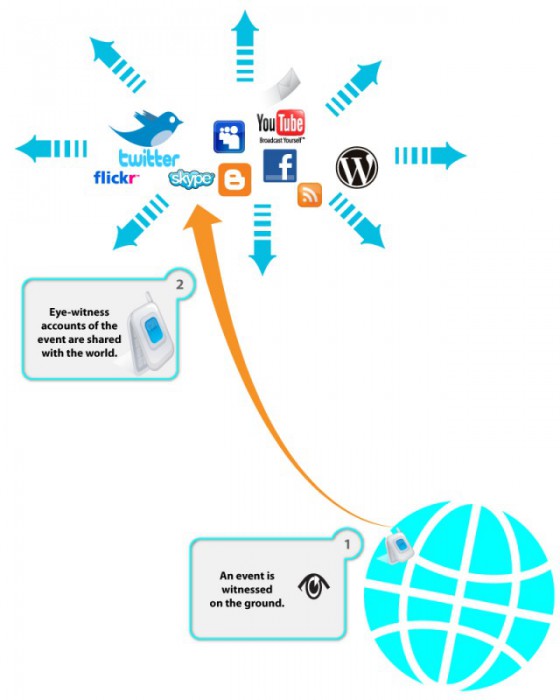Hans Rosling is a professor of International Health at Karolinska Institute in Stockholm, Sweden. (He has been featured on this blog before—“No More Boring Data”.) For me, the most important point Dr. Roseling makes in this TED presentation is that time-saving technology raises the general level of education in the community and women in particular.
Tag Archive for emotional reaction
Background Knowledge Errors, Errors, Ethnographic & User Data, Pipsqueak Articles, Product Design Strategy, Users
Knowledge, Context, and Expectation Part II
by Olga Werby •

I first came across this image years ago in our pediatrician’s office. It made everyone who saw it laugh. The young boy—less than a year old, probably—has very limited world experience. But somethings he knows well—food comes out of those! The boy recognized the imagery, but with his limited background knowledge of art and contextual experience, his expectations of milk were quickly dashed (to the complete amusement of his mother). While we enjoy the boy’s predicament, it is good to keep in mind that the products we create can put our users at a disadvantage. The product’s audience can similarly have limited background knowledge, misinterpret the context, and be left with unexpected consequences. And a loving mother might not be there to console them…
Background Knowledge, Background Knowledge Errors, Cultural Bias, Cultural Differences, Pipsqueak Articles
Cultural Difference: Kids Stories
by Olga Werby •
I came across this short video: “The White Wolf” by Pierre-Luc Granjon. It is an 8 minute animation short about two brothers living in a small French village. Please pay attention to the story-line (I know it is an obvious thing to pay attention to): would it have been received well in US? Note that it is not more gruesome than “Snow White”… This is why cultural context is so important to product design and why I teach the class!
Background Knowledge Errors, Cultural Bias, Group Decision Errors, Mental Model Traps, Misapplication of Problem Solving Strategies, Pipsqueak Articles, Product Design Strategy, Scaffolding
Knowledge, Context, & Expectation
by Olga Werby •

These are three necessary components of any product design: Knowledge: the background information that forms the foundation of product design Context: the ecosystem in which the product will be used Expectation: the alignment of goals between product creators and the users for which it was designed A failure to fully understand any of the above variables results in errors that propagate throughout the product system. But what if the product is disaster preparedness? Consider the design of an evacuation plan ahead of a disaster. You would need to understand the what kinds of damage the disaster is capable of wrecking; the probabilities for each outcome; the people and the ecosystem in which the disaster will occur; and expectations of all the participants in the evacuation plans. Tsunami and The Zoo A few years ago, I was teaching a fifth grade science class where we were discussing the possible damage from a tsunami in San Francisco (we just visited the Bay Model). The problem I posed to the students was to design a reasonable evacuation plan for The San Francisco Zoo animals. The Zoo lies on the tsunami flood plane, and as far as we knew there was no plan for…
Conceptual Design, Cultural Bias, Cultural Differences, Ethnographic & User Data, Pipsqueak Articles, Product Design Strategy
Trolls, Dolls, and Poupees
by Olga Werby •

The first time I saw her, she was riding on a bus. Her hair was long and golden. Her eyes were amazing blue. She was stylishly dressed in a mini skirt and had a cool pair of earrings. But what got me—what burned that moment into my memory forever—was that her long slender legs bent without any visible joints. She was amazing. I wouldn’t see another like her until many years later, when my family was emigrating from Russia and living Vienna. Not far from the apartment we stayed in, there was a toy store and it was filled with wonders just like the one I remembered from so many buses ago: Barbie. When I was growing up in Russia, I played with dolls and poupees—all girls did. The dolls were made to resemble little kids, with big eyes, big heads, chubby cheeks, and cute clothes. I used old buttons and odd bits of cloth and lace to make them new clothes and bedding. My play mainly consisted of creating cool things for my dolls—I liked to sew and glue. And I don’t think that my play was all that much different from girls’ 100 years before—my dolls would have…
Cultural Bias, Cultural Differences, Interface Design, Mirroring Errors, Pipsqueak Articles
Context and Information Processing
by Olga Werby •

Sometimes a book comes along that demonstrates in a very effective way the meaning of perfect. There’s a saying: “I will know when I see it.” But our seeing and knowing is wrapped up in our cultural bias and prone to mirroring errors. This contextual confusion over categorization is often cited during the discussion of American blindness to fat—when everyone in a group is over weight, no one is. The book “Athlete” shows what’s normal for various athletic groups. And what’s normal to some is amazing to others…
Background Knowledge Errors, Pipsqueak Articles
Decision Scaffolding and Crisis Mapping
by Olga Werby •

I’m working on a series of illustrations to highlight the need for decision scaffolding during an aide mission. The ideas are based on the Ushahidi deployment experience in Haiti after the 2009 earthquake. But the idea is to make this more general. I would love ideas and recommendations on how to make this visualization better and more communicative. (read more about crisis mapping here) Crisis: Smoke Signals from Eye-Witnesses Let’s start with a crisis—a natural disaster or a political upheaval leaves thousands of people in desperate need of help. The people on the ground witness the suffering and use ICT (Information Communication Technology) to send up the spoke signals. Please not that Internet services might be compromised (due to deliberate actions taken by the authorities; infrastructure failures; chaotic conditions on the ground), but people tend to be very creative and use phone lines, radios, satellite links, and just person to person communication to get the information out there. During the current Libyan crisis, people were very creative: “To avoid detection by Libyan secret police, who monitor Facebook and Twitter, Mahmoudi, the leader of the Ekhtalef (“Difference”) Movement, used what’s considered the Match.com of the Middle East to send coded love…
